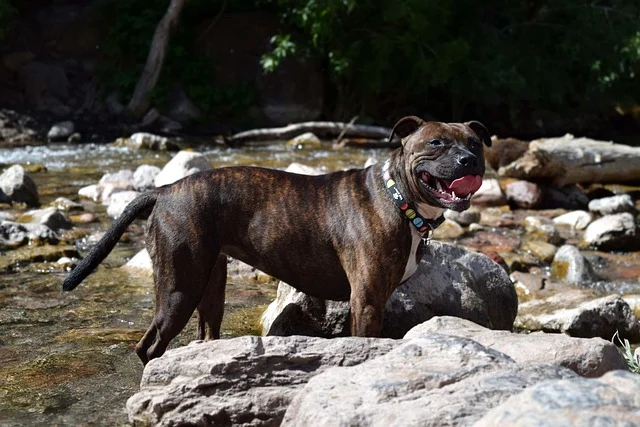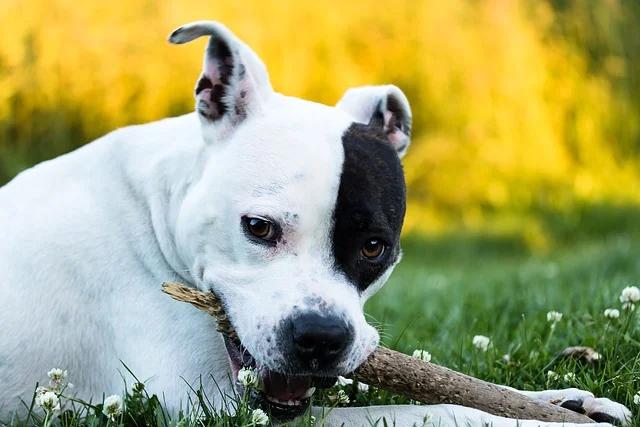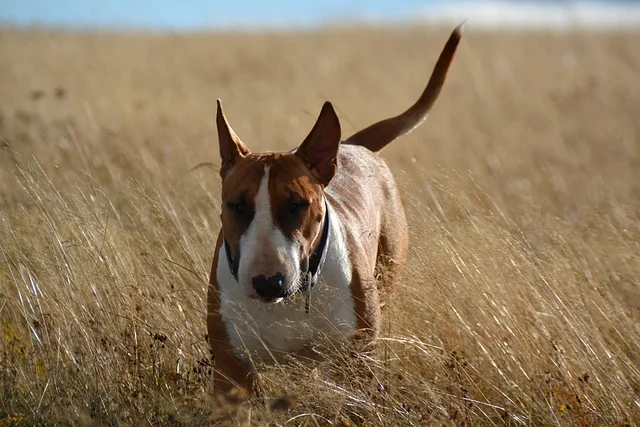Pitbull dogs are a popular and often misunderstood breed. Known for their strength, loyalty, and athleticism, these dogs have a fascinating history and unique set of characteristics. In this article, we will explore the origins and types of pitbull dogs. We also delve into their physical and behavioral traits, debunk common myths, and provide valuable insights for potential owners. Whether you’re already a fan of this breed or simply curious to learn more, let’s dive into the world of pitbull dogs.
The Origins of Pitbull Dogs
The history of pitbull dogs traces back to 19th-century England, where they were bred for various purposes, including bull-baiting and ratting. The breed’s ancestors were a combination of terriers and bulldogs, resulting in a strong and tenacious dog with exceptional athleticism. Over time, these dogs were brought to America, where they found new roles as working dogs, companions, and even therapy animals.
Pitbull Physical Characteristics
| Breed | Size | Temperament | Lifespan | Exercise Needs |
|---|---|---|---|---|
| American Pit Bull | Medium | Affectionate, loyal | 12-16 years | High |
| Staffordshire Bull | Medium | Courageous, friendly | 12-14 years | Moderate to High |
| American Bully | Medium | Gentle, confident | 10-12 years | Moderate to High |
| American Staffordshire | Medium | Confident, outgoing | 12-16 years | High |
Pitbull dogs are medium-sized dogs with well-defined muscles and a sturdy build. They typically have a short, smooth coat that comes in a variety of colors and patterns, including brindle, blue, fawn, and white. Their heads are broad, and their jaws are powerful, contributing to their reputation as strong dogs. Despite their robust appearance, pitbull dogs have a gentle and affectionate expression in their eyes.
Temperament and Behavior
Contrary to popular belief, pitbull dogs are not naturally aggressive. Like any other dog breed, their temperament is influenced by genetics, socialization, and training. Well-bred and properly socialized pitbulls are known for their loyalty, intelligence, and friendly nature. They are often referred to as “nanny dogs” because of their affectionate and protective instincts towards children. With the right upbringing, pitbulls can be excellent family pets.
Training and Socialization
Training and socialization are vital for pitbull dogs to thrive and be well-behaved members of society. Early socialization helps them develop positive behaviors and adaptability. This makes them more comfortable around other animals and people. Positive reinforcement-based training methods work best with pitbulls. They respond well to rewards and praise. Consistency, patience, and firmness are key when training these intelligent dogs.
Health Considerations
Like all dog breeds, pitbull dogs are prone to certain health issues. Responsible breeders focus on eliminating genetic disorders through health testing and selective breeding. Common health concerns in pitbulls include hip dysplasia, allergies, skin conditions, and certain hereditary diseases. Regular veterinary check-ups, a balanced diet, exercise, and preventive care are essential for maintaining their overall health and well-being.
Myths and Misconceptions
Pitbull dogs have been victims of unfair stereotypes and misconceptions. It’s important to debunk these myths and view them as individuals rather than making assumptions based on their breed. Contrary to popular belief, pitbulls are not inherently aggressive or dangerous. Proper socialization, training, and responsible ownership are far more significant factors in determining a dog’s behavior than their breed alone.
Legal and Ethical Considerations
Due to their historical association with dog fighting and media sensationalism, pitbulls face breed-specific legislation in certain jurisdictions. It’s important to research and understand the local laws and regulations regarding pitbull ownership before bringing one into your home. Additionally, responsible ownership involves providing adequate training, socialization, and meeting the breed’s specific needs to ensure their well-being and safety.
Choosing a Pitbull Dog as a Pet
If you are considering adding a Pitbull dog to your family, there are several factors to consider. Assess your lifestyle, time commitment, and ability to meet their exercise needs. Finding a reputable breeder or adopting from a rescue organization is essential to ensure you are getting a healthy and well-socialized dog. Take the time to meet the dog’s parents, ask questions, and observe their behavior to make an informed decision.
The Importance of Responsible Ownership

Responsible ownership is vital for any dog breed, and pitbull dogs are no exception. Owning a pitbull comes with a responsibility to provide proper training, socialization, and care. Regular exercise, mental stimulation, a balanced diet, and regular veterinary check-ups are essential for their well-being. Additionally, being a responsible pitbull owner means advocating for the breed and challenging misconceptions through positive interactions with the community.
Types of PitBull Dog Breeds
Pitbull dogs encompass several breeds that share similar physical characteristics and traits. While many people use the term “pit bull” as a generalization, it refers to specific breeds and their variations. In this article, we will explore some of the most popular types of pitbull dog breeds, highlighting their unique features and personalities. Whether you’re considering adding a pit bull to your family or simply curious about these remarkable breeds, let’s delve into the world of pit bulls.
American PitBull Terrier
The American PitBull Terrier is the most well-known and recognized breed in the pitbull family. They have a muscular build, broad head, and a strong jaw. These dogs are highly energetic, intelligent, and display remarkable loyalty toward their owners. American Pit Bull Terriers require regular exercise and mental stimulation to keep them happy and well-adjusted.
Staffordshire Bull Terrier

Staffordshire Bull Terriers, often called Staffies, are another popular breed within the pit bull group. They have a friendly and affectionate nature, making them excellent family pets. Staffordshire Bull Terriers are known for their love of children and their willingness to please their owners. They have a muscular physique and a distinctive broad smile.
American Staffordshire Terrier

The American Staffordshire Terrier, also known as AmStaff, is a medium-sized breed with a powerful and stocky build. They are known for their intelligence, courage, and loyalty. American Staffordshire Terriers are versatile dogs, excelling in various activities such as obedience, agility, and therapy work. They are also known for their love of human companionship.
Bull Terrier

Bull Terriers are a unique breed within the pit bull family, with their distinctive egg-shaped head and triangular eyes. They are playful, energetic, and have a mischievous personality. Bull Terriers require regular exercise and mental stimulation to prevent boredom, as they are known to be quite active. They form strong bonds with their families and can be protective of them.
American Bully
The American Bully is a newer breed that has gained popularity in recent years. They have a muscular and heavily built frame, with a friendly and outgoing personality. American Bullies are known for their patience and tolerance, making them suitable for families with children. They come in various sizes, from standard to pocket-sized, and have a variety of coat patterns.
Pitbull Mixes
In addition to the purebred pitbull breeds mentioned above, there are numerous pitbull mixes that exhibit similar characteristics. These mixes often combine the physical traits and temperaments of pit bull breeds with other breeds, resulting in unique and diverse combinations. Pitbull mixes can make wonderful companions, but it’s important to consider the specific mix and individual dog’s needs when adopting one.
Pitbulls and Families
Pitbull dogs have a natural affinity for families and are known for their love and devotion to their human companions. They can form strong bonds with children and are often gentle and patient with them. However, it’s crucial to supervise interactions between dogs and children, regardless of breed, to ensure safety and prevent any potential accidents. Teaching children how to approach and interact with dogs respectfully is equally important.
Pitbulls as Working Dogs
Beyond being family pets, pitbull dogs have demonstrated their versatility as working dogs. Their strength, agility, and intelligence make them well-suited for various tasks. From search and rescue to therapy work, pitbulls have proven their capabilities and made significant contributions to different fields. Their determination and eagerness to please their owners make them excellent candidates for obedience trials and other dog sports.
The Pitbull Community
The pitbull community comprises passionate and dedicated individuals who appreciate and advocate for the breed. Online forums, social media groups, and local meetups provide opportunities for pitbull owners to connect, share experiences, and support one another. The community actively promotes responsible ownership, educates the public about the breed, and works towards changing negative perceptions.
Pitbull Rescue and Adoption
Pitbull rescue organizations play a crucial role in finding loving homes for abandoned or neglected pitbulls. If you are considering adding a pitbull to your family, adoption is a compassionate option. Rescue dogs often bring immense joy and gratitude into their new homes, and by adopting, you are giving them a second chance at a happy life. Many rescue organizations provide support and resources to help ensure a successful adoption process.
The Future of Pitbull Dogs
As more people become educated about pitbull dogs and their true nature, the future looks promising for this beloved breed. Advocacy efforts, responsible ownership, and increased awareness are gradually breaking down stereotypes and promoting a positive image of pitbulls. With continued dedication and support, pitbull dogs can thrive as cherished family members and valued members of society.
Conclusion
Pitbull dogs are remarkable creatures with a rich history and distinct set of characteristics. By debunking myths and promoting responsible ownership, we can help create a world where pitbulls are appreciated for the loving and loyal companions they truly are. Understanding their origins, physical traits, temperament, and the importance of training and socialization is essential for potential owners. By choosing a pitbull dog responsibly, providing proper care, and actively participating in the pitbull community, we can ensure a bright future for this remarkable breed.
FAQs (Frequently Asked Questions)
-
Are pitbull dogs aggressive?
Contrary to popular belief, pitbull dogs are not inherently aggressive. With proper training, socialization, and responsible ownership, they can be friendly and well-behaved companions.
-
Do pitbull dogs make good family pets?
Yes, pitbull dogs can make excellent family pets. They are known for their love and loyalty towards their human family members, including children.
-
What should I consider before owning a pitbull dog?
Before owning a pitbull dog, consider your lifestyle, time commitment, and ability to meet their exercise and training needs. Research reputable breeders or consider adoption from a rescue organization.
-
Are pitbull dogs suitable for working roles?
Yes, pitbull dogs excel in various working roles, including search and rescue, therapy work, and obedience trials. Their strength, agility, and intelligence make them well-suited for these tasks.
-
How can I support the pitbull community?
You can support the pitbull community by advocating for responsible ownership, challenging stereotypes, and participating in local meetups or online groups dedicated to the breed.
-
Is a pitbull a safe dog?
Pitbulls can be safe and loving dogs when properly trained, socialized, and cared for. Like any other breed, their behavior depends on factors such as genetics, upbringing, and individual temperament.
-
Are pitbulls good home dogs?
Pitbulls can make excellent home dogs. They are known for their loyalty, affection, and protective nature towards their families. However, responsible ownership, training, and socialization are essential to ensure a well-behaved and happy pet.
-
What is the real name of a pitbull dog?
The term “pitbull” is often used as a generalization for several breeds and their mixes. The official breed names include the American Pit Bull Terrier, Staffordshire Bull Terrier, and American Staffordshire Terrier, among others.
-
What do pitbulls look like?
Pitbulls typically have a muscular build, short coats, and a broad head. Their size can vary depending on the specific breed or mix. They come in various colors and patterns, including brindle, fawn, blue, and white.
-
Are pit bulls dangerous?
Pit bulls, like any other dog breed, can display aggression if not properly trained, socialized, or cared for. It is important to remember that responsible ownership and proper training greatly influence a dog’s behavior.
-
Why were pitbulls called “nanny dogs”?
Pit bulls were historically referred to as “nanny dogs” due to their reputation for being affectionate and protective towards children. However, it is important to supervise any interactions between dogs and children for safety.
-
What makes a Pitbull?
Pitbulls are a group of breeds that share similar physical traits and characteristics. They are known for their muscular build, broad head, and strong jaws. Breeds like the American Pit Bull Terrier and Staffordshire Bull Terrier are commonly associated with the term “Pitbull.”
-
What is the size of an American Pit Bull Terrier?
The American Pit Bull Terrier is a medium-sized breed. Typically, males stand between 18 to 21 inches (45 to 53 cm) tall at the shoulder, while females measure around 17 to 20 inches (43 to 50 cm).
-
What are the top 10 pitbull bloodlines?
The top 10 pitbull bloodlines can vary depending on individual preferences and opinions. Some popular bloodlines include Colby, Razors Edge, Gotti, Gottiline, Greyline, Watchdog, and more. It’s important to note that bloodlines can influence traits but do not guarantee the temperament or behavior of an individual dog.
-
What is a blue nose Pitbull?
The term “blue nose Pitbull” is often used to describe Pitbulls with a blue or gray coat and a blue-colored nose leather. It is not a separate breed but rather a coat color variation found in certain lines of pitbulls.
-
What is a Pitbull mix?
A pitbull mix refers to a dog that has a Pitbull heritage mixed with another breed. These mixes can result in a wide range of appearances and temperaments, depending on the combination of breeds involved.





Leave a Comment
You must be logged in to post a comment.